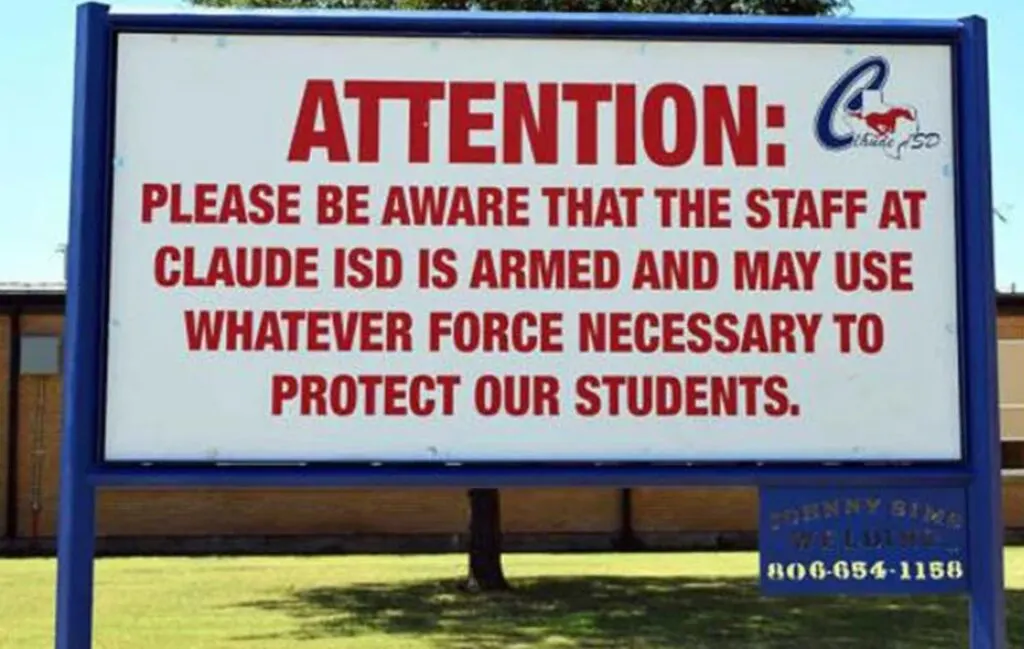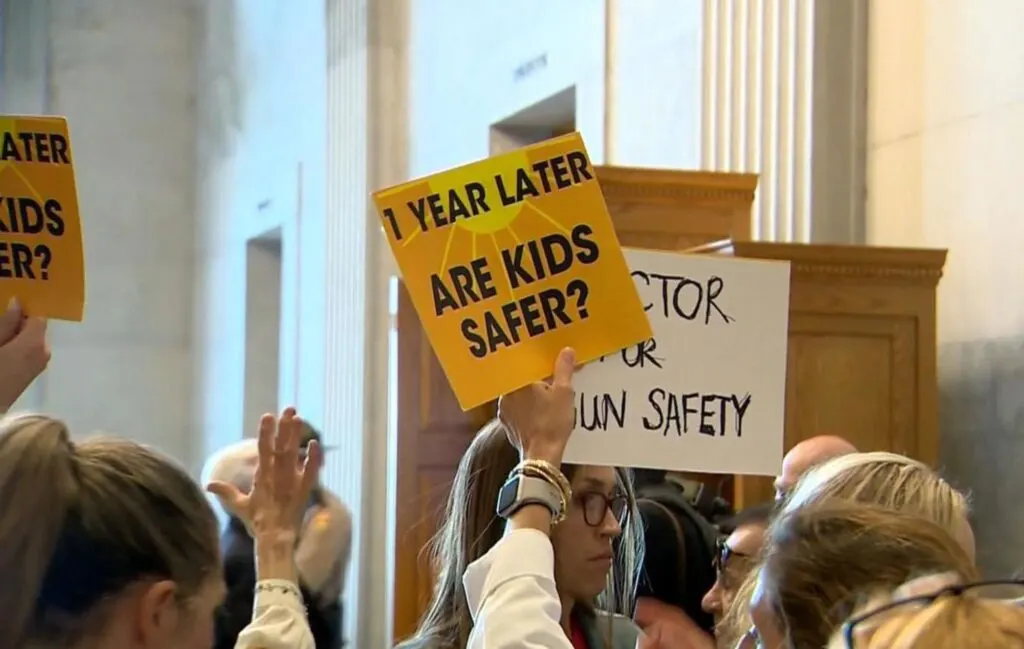With 47 school shootings this year and hundreds in the years past, everyone is quick to find a solution to a highly complex problem. While some people debate stricter gun laws, red flag laws, or bans on guns in general, teachers beg for more mental health support for students. We also beg to be listened to when we see red flags and clear warning signs in our own classrooms.
A new addition to this debate is possibly arming teachers with guns so they can protect their students from attacks. While some support this idea, most teachers do not. And the debate continues. But two states, Iowa and Tennessee, have passed laws making it legal for teachers to carry guns at school.

Iowa Approves Concealed Weapons in Schools
Iowa teacher and statehouse Rep. Molly Buck had the perfect person to ask about a proposed bill that would allow teachers to carry concealed weapons: her dad. HF 2586 makes educators eligible for a permit to carry concealed weapons in schools. Buck consulted her dad because he is a former Nebraska state patrol officer who spent much of his career training other officers.
“I almost never talk politics with my dad—he’s a rock-ribbed Republican,” says Buck, a member of the Iowa State Education Association (ISEA). But it turned out that Molly, a Democrat, and her Republican father were in agreement that teachers should absolutely not be armed.
According to Molly, “My dad explained that even with regular, advanced tactical training, some officers aren’t as good in high-stress situations as others, and educators simply don’t have any of that training. It doesn’t even work on a practical level—even if I do think I’m capable of taking down a shooter, who’s taking care of my 25 frightened 4th-graders?”
Though Buck was a vocal opponent of the bill, the conservative-dominated legislature passed it last April. Tennessee also passed a bill allowing educators to carry concealed weapons in schools. A similar bill was passed in Wyoming but was later vetoed by the governor.

Three Dozen Proposed Gun Laws
There were roughly three dozen proposed gun laws this legislative session. At least nine of them would have put more guns in schools by arming teachers and other staff members. Though most of those efforts ultimately failed, the laws passed in Iowa and Tennessee are deeply concerning to many educators who live in those states, regardless of their views on gun ownership in general.
Similar bills to arm teachers in previous legislative sessions had been stopped because opponents focused on the companies that insure the school districts and how they would not offer liability coverage if educators carried firearms.
“The way the legislators pushing this bill got around it is by providing qualified immunity both to the district and the school personnel,” said Melissa Peterson, Iowa State Education Association Legislative and Policy Director. This means if an educator injures or kills someone when responding to an incident, both the employee and the school district are free of financial liability.
In Tennessee You’re Liable!
Although Tennessee’s law provides immunity from monetary claims to the district, it does not offer the same liability to the school employee, a fact that the Tennessee Education Association is working hard to inform its members about.
Both state laws ultimately leave whether or not to arm educators to a local decision: School boards will decide whether to allow their employees to carry a firearm at school. Both laws also require that if educators are armed, weapons be concealed at all times, and school personnel are carrying firearms be kept strictly confidential—a feature that does not sit well with many educators.
Better, Easier Solutions
What is happening in our schools is absolutely shocking and beyond comprehension. In 2023, K-12 schools saw 348 shootings and another 30 on college campuses. We all want solutions so no one has to suffer another senseless loss of life. But arming teachers is not the answer. Listening to teachers is. In most situations where the shooter is a student at the school, they showed multiple warning signs that teachers had reported.

